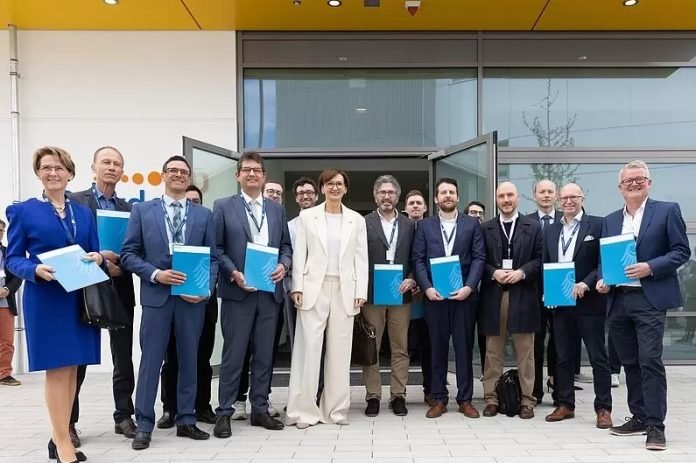VARTA has taken the lead in spearheading a groundbreaking project aimed at advancing next-generation energy storage solutions. This endeavor, known as the ENTISE project (Development of Sodium Ion Technology for Industrially Scalable Energy Storage), focuses on the research and development of sodium-ion batteries, heralded as a promising solution for sustainable and resource-efficient energy storage.
One of the key advantages of sodium-ion batteries lies in the abundance and affordability of sodium, coupled with its safety and recyclability. However, the challenge lies in translating this potential into scalable and commercially viable battery cells. To address this challenge, a consortium comprising 15 companies and universities has been formed, with VARTA assuming the role of initiator and coordinator. The project has secured funding of approximately 7.5 million euros from the Federal Ministry of Research and Education, marking an important milestone in the pursuit of innovative energy storage solutions. The official approval for the project was granted on Thursday, 2nd May, with Federal Research Minister Bettina Stark-Watzinger handing over the funding decision.
Dr. Nicolas Bucher, Head of Funded Projects, and Rainer Hald, Chief Technology Officer of VARTA AG, accepted the certificates on behalf of VARTA Microbattery and VARTA Storage, respectively. The project is slated to commence on 1st June 2024. The primary objective of ENTISE is to develop a high-performance, cost-effective, and environmentally friendly cell chemistry for sodium-ion batteries, with a focus on industrial applicability. This entails the enhancement of existing material concepts and processes, particularly with regards to improving the storage capacities of the cathode and anode. Material optimization, including electrolytes, is crucial, along with enhancing cycle stability to ensure consistent performance over multiple charge-discharge cycles. The project will involve the production of sufficient quantities of materials to build laboratory samples and prototypes in round cell design. In the latter stages, the focus will shift towards upscaling and transferring components from the laboratory to the pre-industrial sector through collaborative efforts between industry and institute partners. The culmination of these efforts will result in the production of a small series of round cells for evaluation in practical applications such as electric vehicles and stationary storage systems. The project is scheduled to conclude in mid-2027, with a comprehensive technical, economic, and ecological evaluation complementing the research and development activities.







